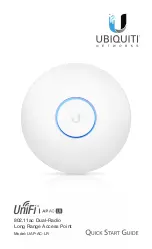
R E V I E W D R A F T # 1 — C I S C O C O N F I D E N T I A L
A-25
Cisco WRP500 Administration Guide
Appendix A Advanced Voice Fields
Regional page
Feature Dial Services
Codes
These codes tell the WRP500 what to do when the user is listening
to the first or second dial tone.
One or more *code can be configured into this parameter, such as
*72, or *72|*74|*67|*82, etc. Max total length is 79 chars. This
parameter applies when the user has a dial tone (first or second dial
tone). Enter *code (and the following target number according to
current dial plan) entered at the dial tone triggers the WRP500 to
call the target number prepended by the *code. For example, after
user dials *72, the WRP500 plays a special tone called a Prompt
tone while awaiting the user to enter a valid target number. When a
complete number is entered, the WRP500 sends a INVITE to *72
target_number
as in a normal call. This feature allows the proxy to
process features like call forward (*72) or BLock Caller ID (*67).
The *codes should not conflict with any of the other vertical service
codes internally processed by the WRP500. You can empty the
corresponding *code that you do not want to the WRP500 to
process.
You can add a parameter to each *code in Features Dial Services
Codes to indicate what tone to play after the *code is entered, such
as *72‘c‘|*67‘p‘. Below are a list of allowed tone parameters (note
the use of back quotes surrounding the parameter w/o spaces)
‘c‘ = <Cfwd Dial Tone>
‘d‘ = <Dial Tone>
‘m‘ = <MWI Dial Tone>
‘o‘ = <Outside Dial Tone>
‘p‘ = <Prompt Dial Tone>
‘s‘ = <Second Dial Tone>
‘x‘ = No tones are place, x is any digit not used above
If no tone parameter is specified, the WRP500 plays Prompt tone by
default.
If the *code is not to be followed by a phone number, such as *73 to
cancel call forwarding, do not include it in this parameter. In that
case, simple add that *code in the dial plan and the WRP500 send
INVITE *73@..... as usual when user dials *73.
















































